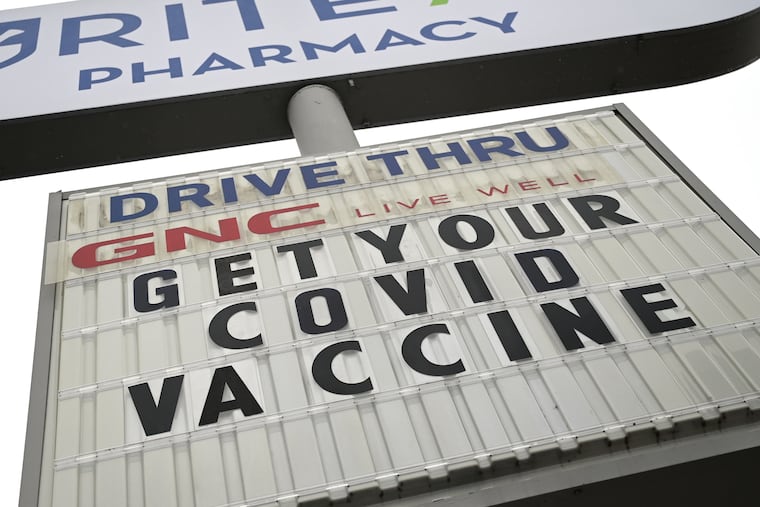Injected without consent: Vaccine mandates rob us of personhood | Opinion
A politics professor, who is grateful for his own COVID vaccination, argues that mandates treat people like they're pieces of meat.

At this stage of the pandemic, there’s been a lot of talk about mandates in Philadelphia — for nursing homes, sport teams, city workers, and schools. When people hear that only 1 in 10 Philly cops and less than one-quarter of firefighters have submitted proof that they are vaccinated, some immediately say we should force people to choose between getting the shot and keeping their job.
But perhaps it is not too late to tap the brakes on all that a mandate implies. Could it be that mandates themselves are partly to blame for the resistance they provoke? There is something visceral in the response that we cannot be compelled to put anything into our bodies against our own will. Is freedom of choice not at the heart of many of our long simmering social battles? Vaccine mandates can generate a similar refusal to yield control over our destinies. In the end you’re not sticking something into my arm. You’re sticking it into me.
Official directives, with all the not so subtle monopoly of force government wields, are not to be taken lightly. It is one thing for me to volunteer, to request the protection of a shot (which I have received), but to be compelled is a far different matter. The government no longer views me as a person, with all the expectation of self-determination entailed. Instead it treats me as a piece of meat to be injected.
“We cannot overlook the rights of some without jeopardizing the rights of all and demonstrating that, under certain conditions, we are prepared to set aside our deepest convictions.”
Roughly 30% of Philadelphia residents aged 12 and up have not been vaccinated. Even if the number of resisters was smaller than it currently is, would we be justified in riding roughshod over their concerns? To do so is to declare that interior freedom no longer counts. Of course there are times when public safety requires just such summary dismissal. To save all or a greater number it may be that some have to be, if not sacrificed, at least not taken into account. But is this what is happening in the vaccine mandate controversy? We may think that the hesitant are more in danger from disease than from the vaccine, but is it so implausible that they might perceive the danger in opposite terms? Many come from the ranks of those who fought heroically on the frontlines of the pandemic, such as nurses, police, and firefighters, so I’m bound to feel uneasy about dismissing their perspective. Can we so lightly ignore their reservations?
The public interest in conquering COVID-19 has induced us to accept tradeoffs we would not normally endure. We supported lockdowns and restrictions that in retrospect had higher costs than foreseen, but we put up with them as temporary. When a forest fire is raging, you obey the authorities who prohibit you from the vicinity. But now something more than a tradeoff is at stake. We are not asking for a temporary surrender of liberty, an inconvenience, but a permanent submission to an order with which one deeply disagrees. This is not like paying a fine. It is an irrevocable loss of autonomy for those affected.
» READ MORE: EXPLAINER: What vaccine mandate means for firms and workers
We cannot overlook the rights of some without jeopardizing the rights of all and demonstrating that, under certain conditions, we are prepared to set aside our deepest convictions. Under the vaccine mandates, we are declaring that the views of our fellow citizens, at least in this case, do not count. Sailors on an aircraft carrier may have to submit to a pre-emption of their autonomy, but citizens of a free society should be able to find another way.
David Walsh, professor of Politics at The Catholic University of America, is author of The Priority of the Person (Notre Dame, 2020)